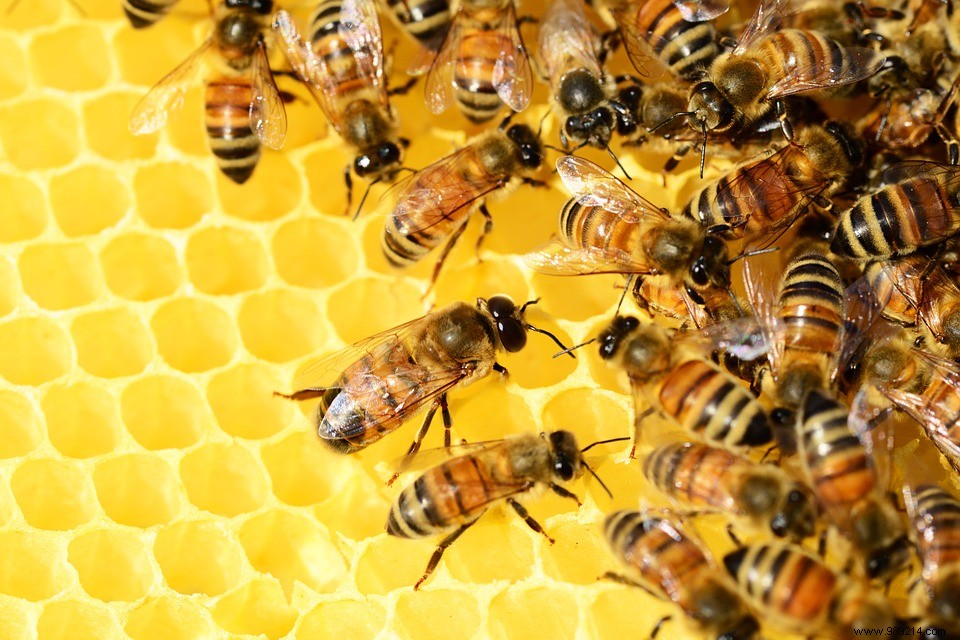Australian researchers found that bee venom quickly destroys breast cancer cells, even in the most aggressive forms.
Bee stings can be painful. They can also sometimes be life-threatening in case of allergy (anaphylactic shock). But imagine the opposite:that the venom of these insects is on the contrary capable of saving lives. This is the promise of a study conducted by researchers at the Harry Perkins Institute of Medical Research in Perth (Australia).
Bee venom has already demonstrated its antitumor powers against melanoma, non-small cell lung cancer, glioblastoma, cancers of the ovary, cervical uterus or pancreas. As part of this work, the researchers focused on an aggressive form of breast cancer, called "triple negative".
This cancer, which affects about 15% of patients , is characterized by the absence of a known marker on the surface of cancer cells, likely to respond to a known targeted therapy. While about half of these cancers respond well to conventional chemotherapy treatments, the other half are likely to develop resistance . The recidivism rate is also quite high within two years of the end of treatment.
For this study, the researchers first extracted venom from several bees in Australia, Ireland and England after putting them to sleep with CO2. They then injected the substance into tumors formed in mice bred to develop "triple negative" breast cancer.
These experiments showed that at specific concentrations, bee venom could kill up to 100% of these unwanted cells. All would have been destroyed in less than sixty minutes, and with minimal effects on healthy cells.
According to Dr. Ciara Duffy, who led the research, the responsible for this anti-carcinogenic effect is none other than melittin . This oligopeptide, which is the main component of bee venom, does indeed appear to cross the plasma membrane of cancer cells, forming small pores (holes) that ultimately lead to cell death.
Researchers also found that this venom "switched off" all of the chemical cancer signaling pathways that normally allow cancer cells to grow and reproduce.

Credits:Pixabay / PollyDot
As part of this work, the team also sought to assess the response of this new approach combined with conventional chemotherapy drugs, such as docetaxel. They then found that the small holes pierced by the bee venom compound allowed these treatments to penetrate easily into cancer cells , thereby reducing tumor growth in mice.
Finally, it is noted that melittin is a compound that can be synthesized . In other words, if this new approach were to be validated in the future, we would need no bees to develop it . For the time being, the researchers intend to continue this work, still on animal models, before considering the first clinical trials.